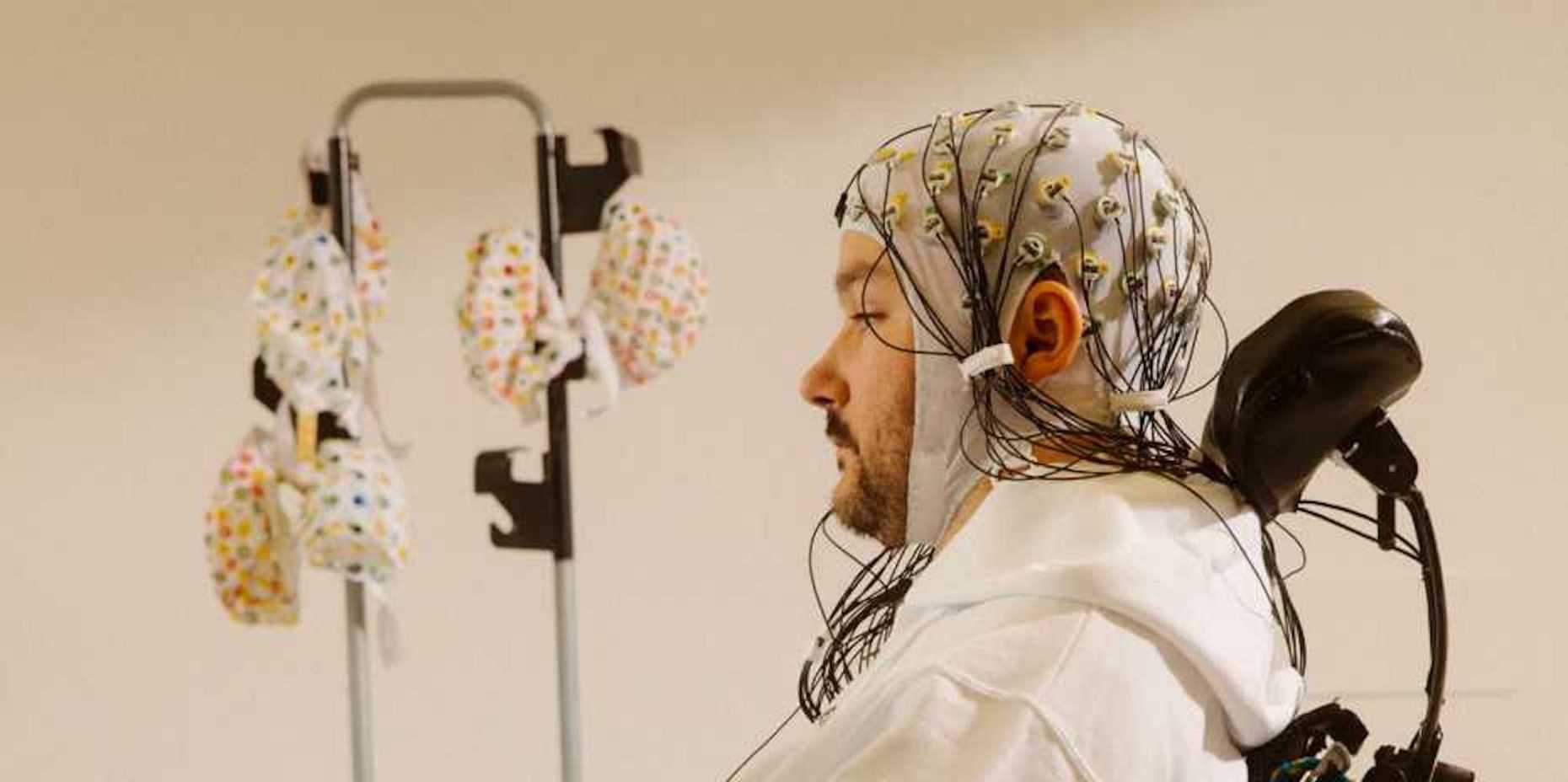Collaborating to drive assistive technologies
13 Nov | A team from the Future Health Technologies has been working together on a race like no other - to drive the advancement in assistive technology for those who are physically challenged.

Researchers from the Future Health Technologies (FHT) are collaborating with the Nanyang Technological University (NTU) on a “pilot” project to drive the advancement of assistive technology - both in the literal and metaphorical sense.
The team from the “Connected Rehabilitation Technology and Assistive Devices” module at FHT, is made up of members from the the Neural Control of Movement Lab at ETH Zurich and Brain-Computer Interface Lab at NTU. Led by FHT principal investigators (PI) Prof Prof. Nicole Wenderoth and Prof. Guan Cuntai, the team of eight has been working together on a race like no other.
Since 2018, the SEC FHT team has been developing brain-computer interfaces (BCI) to help a quadriplegic pilot navigate his vehicle through a race course in the BCI race of this year’s Cybathlon.
The Cybathlon, organised by ETH Zurich, is a unique championship in which people with physical disabilities compete against each other to complete everyday tasks using state-of-the-art technical assistance systems. Beyond the competition, it offers a platform to advance research in the field of assistive technology and to promote dialogue with the public about the inclusion of people with physical challenges in everyday life. Professor Roger Gassert, lead PI of the Connected Rehabilitation Technology and Assistive Devices module at FHT, is Vice President of the Cybathlon’s strategy board.
In the BCI race, pilots with quadriplegia use brain-computer interfaces to control avatars through a race course within the time limit of 4 minutes wins the race in a computer game. The aim of this technology is to control devices such as wheelchairs for people with limited ability to move.
The challenge is that the thoughts must be transmitted correctly. The avatar moves correctly and quickly only if the computer receives the correct brain signal at a specific moment. The BCI race, therefore, tests the reliability and precision of this technology in a virtual game.
“Although the engineering and neurosciences are far from ready, we are thinking about the vision of using BCI to give commands to non-invasive mobile technologies to operate aids such as smartphones or wheelchairs," says Dr Rea Lehner who manages Team SEC FHT, and is currently the senior programme manager of the FHT.
"The encoding of brain activity still has much room for improvement. Nevertheless, I see many great possibilities how the system could be integrated into everyday life, you could control almost all technical devices with BCI-technology," Samuel Kunz, the pilot of team SEC FHT. He has been training three to four hours per week to prepare for the race on 13 November 2020.
The Cybathlon will be conducted fully online this year in view of the unexpected circumstances. View more details here